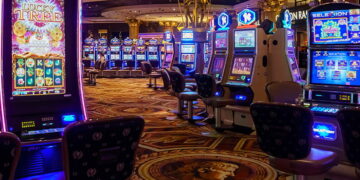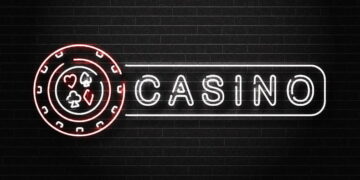We will begin our article by talking about the importance of gambling addiction recovery, followed by the types of treatment players in the UK can seek. We will also outline the most common symptoms of gambling addiction and give some tips for problem gamblers and their loved ones. Lastly, we have addressed the most commonly asked questions on the topic.
Gambling Addiction Recovery
In the UK, there are close to 500,000 problem gamblers, and approximately 2 million people are at risk of developing a gambling addiction. Hence, it is vital to play at trusted and reputable gambling establishments that promote and encourage responsible gambling. We encourage you to play only at licensed gaming operators such as the safest online casinos in the UK.
Furthermore, everyone who gambles is at risk of developing a gambling addiction. If you or a loved one is struggling to control their urges, they might benefit from seeking gambling addiction treatment in the UK. Medical practitioners have found that problem gamblers respond well to pharmacological and psychosocial treatments.
Gambling Addiction Recovery Treatment
It is a long journey to gambling recovery, but it all starts with a single step – admitting there is a problem that must be addressed. Many problem gamblers have managed to overcome their gambling addiction entirely and even enjoy casually playing at some of the best UK casino sites . Some respond better to pharmacological treatment, while others benefit from psychosocial ones.
According to the NHS, cognitive behavioural therapy provides the best results. In gambling therapy, individuals learn skills that can help them prevent relapses and how to break unhealthy habits and identify the underlying cause of the addiction. Here is a list of the treatment and support groups available for problem gamblers in the UK:
- GamCare
- Gamblers Anonymous UK
- National Centre for Behavioural Addictions
- National Problem Gambling Clinic (England and Wales)
- National Centre for Gaming Disorders (England and Wales)
- NHS Northern Gambling Service (North England, including Midlands)
- Gordon Moody Association
GamCare is an organisation that provides free information, support and counselling for people struggling with gambling addiction. It also operates the National Gambling Helpline (0808 8020 133). Problem gamblers can enrol in a 12-step programme – Gamblers Anonymous – which offers judgement-free support for people in recovery and their loved ones.
The National Problem Gambling Clinic, the Young Persons’ Problem Gambling Clinic, and the National Centre for Gaming Disorders are part of the National Centre for Behavioural Addictions. People struggling with a gambling addiction who are 16 years old or older and are living in England or Wales might be eligible for enrolling on the service offered by the National Problem Gambling Clinic.
Teenagers aged 13 or over living in England or Wales who experience gambling-related problems can seek help from the National Centre for Gaming Disorders. The NHS Northern Gambling Service offers specialist gambling addition therapy in the north part of England as well as the north Midlands.
Last but not least, the Gordon Moody Association provides courses for people struggling with gambling. This organisation also runs the Gambling Therapy website that offers free support to gambling addicts and their loved ones. Nowadays, UK players who struggle with gaming urges can easily find trusted resources and qualified free help from all corners of the country.
Signs and Symptoms of Gambling Addiction
Most people who struggle with gambling addiction report that they experience a loss of control despite the negative consequences that could follow from their actions. Medical experts describe this as a compulsive disorder that affects the reward system in a person’s brain. Here are some of the most common signs and symptoms of gambling addiction:
- A need to gamble with larger sums of money
- Failure to control, cut back, or stop gambling
- Restlessness and irritability when trying to stop
- Trying to win back lost money (chasing losses) with gambling
- Destruction of personal and professional relationships
- Stealing money to gamble
A problem gambler could experience some or all of these symptoms. They might be unable to stop gambling or have an urge to chase losses at any cost. Often, individuals who lose a large sum of cash feel bad about it and try to win it back, which could lead to more significant losses or debt.
Destructive behaviour like this could have a serious impact on a person’s physical, emotional, and financial health. So, if you or someone close to you experience a loss of control while gambling, we strongly advise you consider treatment for gambling addiction.
Self-Help Tips for Problem Gamblers
The first step to gambling addiction recovery is typically the hardest. People who struggle with controlling their urges must admit they have a problem and be willing to work on it. You can do certain things to reduce the risk of becoming an addict. In the table below, you can find some of the self-help tips for problem gamblers from the NHS:
| ✔️ Pay important bills on payday before you gamble | ❌ Do not rely on gambling to make a living |
| ✔️ Surround yourself with people that do not gamble | ❌ Do not ignore your problem |
| ✔️ Take care of your debts | ❌ Do not carry credit cards with you when gambling |
There are more things that people can do to avoid gambling addiction or to keep it at bay. For example, you can use demo games to get familiar with titles and build a strategy that works for you. Another great tip is to avoid gambling while intoxicated. This could help you stay in control.
Tips for Family Members and Loved Ones
You might experience a lot of conflicting emotions if someone close to you is struggling with a gambling addiction. For instance, you might put a lot of energy into preventing your loved one from gambling or simply sharing their burden. Meanwhile, you might also feel frustrated and angry with them for gambling. Here is a list of dos and don’ts for family members of gambling addicts:
| ✔️ Talk calmly to your loved one about their gambling problem and the negative consequences of their addiction | ❌ Avoid accusatory behaviour such as lecturing, threats and ultimatums |
| ✔️ Enrol in support groups for families of problem gamblers | ❌ Don’t overlook their positive qualities |
| ✔️ If you have children, talk to them about the problems caused by your loved one’s gambling addiction | ❌ Don’t stop your partner from attending family gatherings |
| ✔️ Take control over the family finances and monitor the bank statements | ❌ Don’t enable their gambling in any way |
| ✔️ Support and encourage your partner during their recovery | ❌ Don’t bail your partner out of debt |
| ✔️ Talk to your loved one about how their gambling affects you | ❌ Don’t deny or cover up your loved one’s gambling problem to yourself or others |
The support from friends and family is an important part of the treatment for gambling addiction. However, problem gamblers must take the decision to seek help on their own. Remember that you cannot make someone stop gambling, no matter how badly it affects them. What you can do is help and encourage them to seek professional help.
Popular Questions
We have reached the end of our piece, so hopefully, by now, you have found answers to all your questions. However, we know some of you might be eager to learn more about the topic. Thus, we have prepared this handy FAQ section to answer the most commonly asked questions by gamblers.









